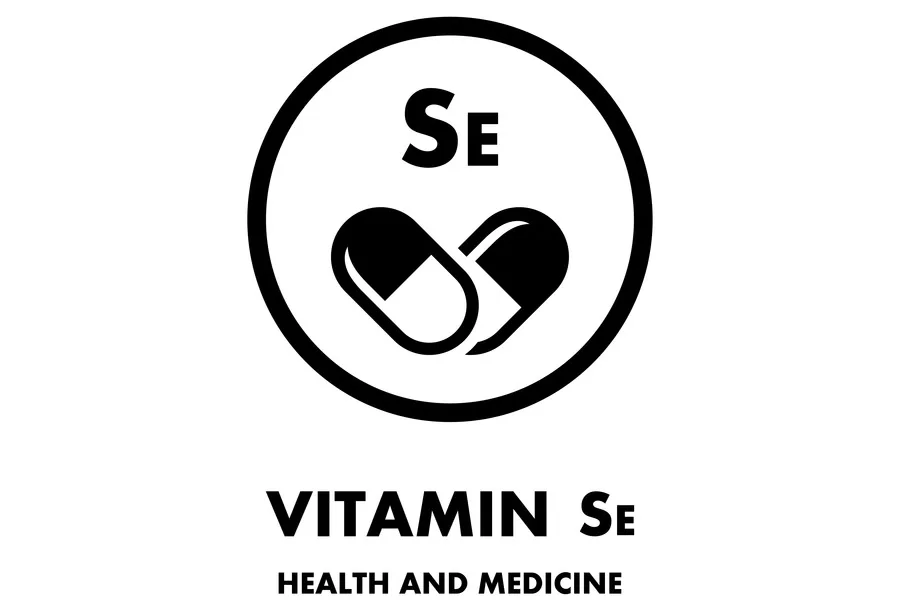
Have you ever considered the impact of micronutrients on your overall well-being? Selenium, a critical player in the fight against cellular damage, stands at the forefront of this battle, ensuring your body’s defenses are strong and resilient. But its benefits extend far beyond. From thyroid health to hormonal harmony and beyond, Selenium’s influence on our health is profound and multifaceted.
Desire a healthier, more balanced life?
Selenium
Selenium’s role in the human ecosystem is profound, serving as a crucial shield against oxidative stress. This stress, akin to a silent storm within, results from an imbalance between free radicals—mischievous molecules—and the body’s antioxidant defenses. These radicals, if left unchecked, can wreak havoc on our cellular structures, accelerating the aging process and paving the way for chronic diseases. Selenium emerges as a superhero, neutralizing these radicals and safeguarding our cells, thus promoting self-repair and fortifying our immune defenses against various ailments.
Thyroid Health: Selenium’s Domain
Among selenium’s pivotal roles is its contribution to thyroid function. The thyroid, a central player in our endocrine system, dictates our metabolic pace, influencing weight, energy levels, and even our heart’s rhythm. Selenium is essential for activating thyroid hormones, transforming thyroxine (T4) into the more potent triiodothyronine (T3). This process is crucial for maintaining metabolic harmony. A deficiency in selenium can disrupt this balance, leading to potential thyroid issues that manifest as fatigue, unexplained weight changes, and emotional disturbances.
The Unseen Hormonal Conductor
Beyond its direct roles, selenium’s influence extends to regulating hormonal equilibrium, including the intricate dance of reproductive hormones and testosterone synthesis. By ensuring the thyroid operates smoothly, selenium indirectly supports the hormonal orchestra that is vital for our reproductive health, muscle maintenance, and immune competence. This nuanced role underscores the mineral’s importance in our diet, highlighting the interconnectedness of our bodily systems and the profound impact of micronutrients on our overall health.
Unlocking Hormonal Balance
Across the spectrum of vital bodily functions, testosterone emerges as a key hormone for all, influencing muscle development, bone strength, and blood cell formation. In women, its role extends to fat distribution, muscular integrity, and sexual health. A lesser-discussed yet critical mineral, present in our diet, plays a significant role in modulating these essential testosterone levels.
Shielding the Building Blocks
At the microscopic level, this mineral serves as a sentinel, protecting cells from the nefarious activities of free radicals. These intruders can impair cells, including those vital for testosterone production in the testes. By counteracting these invaders, the mineral ensures the continuity of testosterone synthesis, crucial for hormonal equilibrium.
Supporting the Metabolic Conductor
This element extends its beneficial effects to the thyroid, a small yet influential gland that dictates our metabolic rate and hormonal orchestra. Its support to the thyroid facilitates the regulation of testosterone, demonstrating the intricate web of nutrient-hormone interactions that underpin our health.
Potential Direct Influence
Ongoing research delves into the possibility that this mineral might directly catalyze testosterone production, engaging with specific biochemical processes within the body. This intriguing hypothesis points to a more direct relationship between dietary intake and hormonal health, illuminating the complex dance between micro-nutrients and hormones.
Harmony Through Balance
Striking the correct dietary balance of this mineral is crucial for its benefits to shine. An excess or deficiency could disrupt bodily functions. A diet rich in specific nuts, seafood, and meats generally suffices in meeting our needs for this nutrient. Consulting with healthcare professionals before supplementing is advised to navigate the fine line between sufficiency and overconsumption safely.
How Much Selenium Do You Need?
Embarking on the quest for optimal selenium intake doesn’t need to be a complex adventure. The target for adults is a mere 55 micrograms a day, a testament to the principle that sometimes, less is more. Your culinary arsenal for meeting this goal is vast. Topping the list are Brazil nuts, which pack a powerful selenium punch, sometimes meeting or exceeding your daily needs with just one nut. Sea enthusiasts will find solace in the selenium richness of fish and shellfish, while land-based options like organ meats offer a hearty alternative. Plant lovers aren’t left out, with grains, seeds, and dairy serving as plant-forward selenium sources.
The Balancing Act: Selenium Dosage
Maintaining selenium harmony is crucial, as tipping the scales can lead to selenosis, with symptoms that range from stomach upset to hair loss, and even neurological disturbances. The art of balance involves diversifying your plate with selenium-bearing foods, ensuring you benefit from this nutrient’s prowess without venturing into the realm of excess.
Constructing a Selenium-Rich Menu
To keep your selenium levels finely tuned, think of your meals as a canvas, painting a picture of nutritional balance. Integrating a handful of Brazil nuts into your weekly routine, alongside regular servings of seafood, and rotating between meat, dairy, and vegetarian sources of selenium, can create a harmonious diet that supports your health goals.
Personalized Nutrition Guidance
Should questions arise about your selenium intake, or if you find yourself pondering the adequacy of your diet, seeking guidance from a healthcare provider can illuminate the path. Tailored advice can help adjust your dietary sails, steering you towards a state of nutritional equilibrium that’s just right for you.
Selenium and Testosterone Levels
In the complex interplay of nutrients and hormones, the selenium-testosterone dynamic stands out, illustrating the unique nature of individual biochemistry. For those navigating the choppy waters of hormonal imbalances or fertility concerns, selenium offers a glimmer of hope, with the potential to elevate testosterone levels subtly. However, this mineral’s capacity to influence does not extend across the board; where selenium and testosterone levels are already in sync, additional selenium intake fails to make waves, showcasing its impact as contingent on the individual’s health context.
The Singular Journey with Selenium
Diving into selenium supplementation is akin to exploring a personal health odyssey, colored by the specifics of one’s health landscape. The interplay of factors such as age, existing health conditions, and the nutritional matrix within which selenium is introduced significantly shapes its role in testosterone regulation. This narrative reinforces the notion that selenium’s benefit is not universally applicable, but rather, an element that may or may not be missing from the puzzle of optimal health for each individual.
Charting a Course for Selenium Supplementation
Contemplating the addition of selenium to one’s diet warrants a nuanced approach, deeply grounded in the uniqueness of one’s health and nutritional intake. The delicate relationship between selenium and testosterone highlights the indispensability of customized dietary counsel. Dialogue with healthcare practitioners is invaluable, illuminating the path to supplementation that is not only necessary but beneficial, thus avoiding the potential hazards of an uncalculated approach to dietary enhancement.
The narrative of selenium in the quest for hormonal balance champions the concept of dietary supplementation as a bespoke expedition. This journey, ideally navigated under the stewardship of health professionals, affirms that maintaining the harmony between nutrients and hormones is a tailored process, responsive to the individual contours of health and wellbeing.
Boosting Brain Power with a Tiny Mineral
Your brain is like the boss of your body, making sure everything runs smoothly. To help it do its job, there’s a small yet powerful mineral that plays a big role in keeping your mind sharp and focused. This nutrient acts like a shield, protecting your brain from tiny troublemakers that can cause damage.
- Keeping Spirits High: But it’s not just about being smart; it’s also about feeling good. Having enough of this nutrient in your diet can help lift your mood, making you feel more upbeat and balanced. It’s like a natural way to brighten your day and chase away any gloominess.
- Fighting the Brain’s Aging Process: As we get older, our brains can start to slow down a bit. But this special mineral can help slow down that slowdown. It works to protect your brain from aging too quickly, which means your memory stays sharper and learning new things feels easier, even as you age.
The Importance of Balance
While this mineral is fantastic for your brain, too much of it isn’t a good thing. Balance is key. Eating a variety of foods and talking to a doctor before starting any supplements is the best way to make sure you’re getting the right amount for your brain and overall health.
Conclusion
This indispensable nutrient is a powerhouse for fighting cellular invaders, supporting essential gland functions, and stabilizing hormone levels. Crucial for maintaining sharp minds and positive moods, it plays a significant role in decelerating the mental wear of time. Diverse sources such as exotic nuts, ocean fare, and lean meats are key to harnessing its advantages while maintaining dietary equilibrium. Dialogue with healthcare professionals ensures a customized approach to consumption, aligning with individual health requirements.
FAQs
This essential trace mineral acts as a protective antioxidant, combating oxidative damage and supporting numerous physiological functions including optimal thyroid operation, hormonal balance, and robust immune responses.
By facilitating the conversion of thyroxine (T4) into its more active counterpart, triiodothyronine (T3), it ensures metabolic processes remain harmonious and efficiently regulated.
Absolutely. By bolstering thyroid gland health, it indirectly orchestrates the regulation of crucial hormones, aiding in reproductive health, muscle preservation, and immune system functionality.
Indeed, it might either directly impact or support the protection of cells involved in the synthesis of testosterone, showcasing potential roles in modulating this key hormone’s levels.
Among the top sources are Brazil nuts, rich in this nutrient, alongside seafood, liver, and poultry. Plant-based sources include grains, seeds, and some dairy products, offering a variety for every diet.







